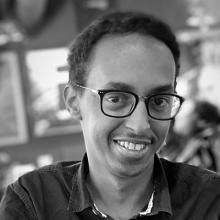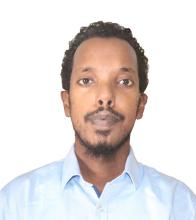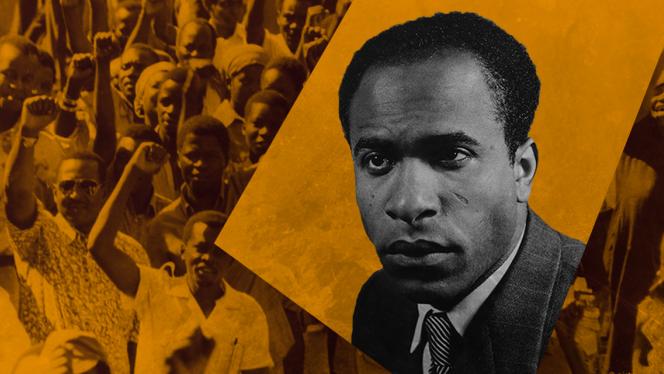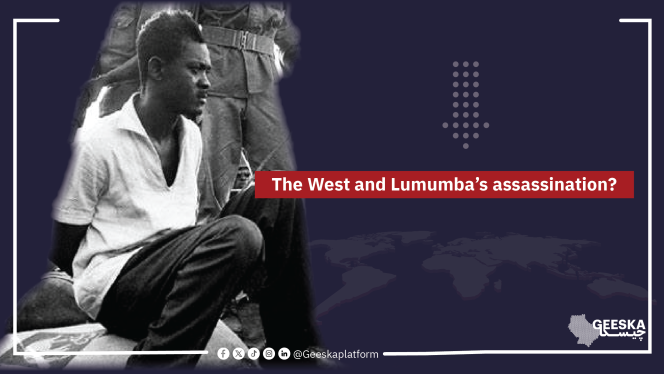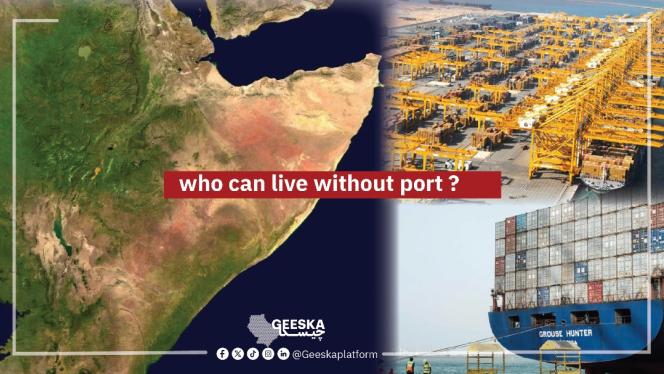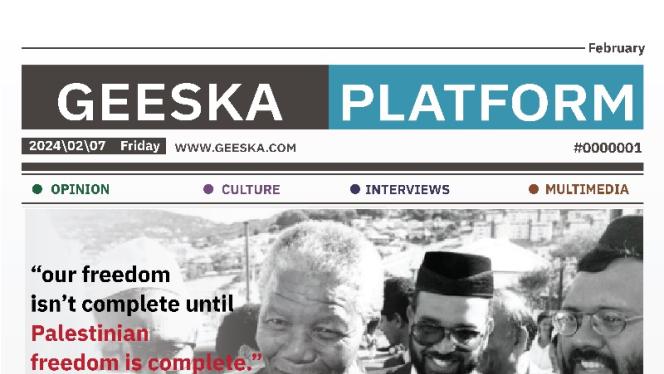Politics
Somaliland’s two leading political parties have competing visions for the republic’s place in the world.
Sudan’s army began an offensive against Rapid Support Forces at the end of September and has gained the initiative against the paramilitary group partially by relying on international support. Since military clashes began in Sudan 17 months ago between the Sudanese Armed Forces (SAF) and the paramilitary Rapid Support Forces (RSF), the conflict has resulted in the world’s worst and largest humanitarian crisis.
To navigate multipolarity, the continent needs a common narrative that strategically mediates its conversations with China and other world powers.With the 2024 Summit of the Forum on China-Africa Cooperation (FOCAC) fetching a commitment to a three-year funding envelope of US$51 billion, along with a promise of a million jobs from China, African leaders appear to have secured concessions from China. After all, Africa is that continent where unemployment is imploding into street protests with all sorts of implications.
The TPLF has a long history of factionalism and internal disputes. The recent issues surrounding the Pretoria agreement, which ended the two-year war in Tigray, are best understood in relation to the dispute that fractured the party in the early 2000s. In late 2000, shortly after completing my studies at Addis Ababa University, I travelled to Mekelle, Tigray, to begin my first professional job. It was not an ideal time to be in Tigray.
The United Nations has accused foreign players of prolonging the war in Sudan, making it harder for the country to find peace. May Darwich, who has studied the alliances that countries in the Middle East form in the Horn of Africa provides insights on the situation.The United Nations has accused foreign players of prolonging the war in Sudan, making it harder for the country to find peace.
Opinion
The economic boom in Kenya’s major urban areas has not extended to the northern parts of the country, which remain neglected backwaters. Germany’s unification experience offers important lessons for addressing these disparities. Kenya’s rapid urban development, particularly in cities such as Nairobi, reflects a narrative of economic transformation.
The plastic bag ban, intended to safeguard the environmental health of Somali cities, already appears to be stillborn policy. The government urgently needs to adopt a new approach that collaborates with communities instead of imposing top-down rules. Earlier this year, Somalia’s ministry of environment and climate change (MoECC) made headlines by declaring a nationwide ban on single-use plastic bags.
Politicians and public figures in Somaliland have turned to name-calling and populist rhetoric. This diverts attention and energy away from the more serious discussions that need to take place about the country’s future. As Somaliland prepares for its election in November, political tensions are escalating, with parties and public figures on social media resorting to labelling each other with terms like heego and huwan.
Somali-Australian academic, Najat Abdi, reflects on the genocide in Gaza and how we navigate grief as Israel’s US-backed destruction of the Strip appears to have no end in sight. No one knows how to process the first livestreamed genocide in history. I stopped trying months ago, when my friends were killed in Gaza.
As the Somali community in the US becomes more established, the formerly ironclad relationship between them and the Democrats is beginning to show signs of strain in some quarters. Trump has surprisingly been making inroads. With national elections in the US slated for this November, a new and unexpected trend is emerging: Somalis supporting Donald Trump.
Culture
Author and researcher Mohamed Kheir Omer reflects on the life and work of the musician Tewolde Redda. Tewolde Redda is one of Eritrea’s most prominent artists, renowned for his commitment to the people’s cause. His legendary song Shegey Habuni (Give Me My Torch), first performed in 1965 at Cinema Odeon, resonates as a powerful cry for freedom. Despite its metaphorical lyrics, the song has been widely interpreted as a call to regain liberty, and its relevance endures to this day.
The widespread use of skin-bleaching products among Somalis is detrimental to both individual health and our collective understanding of beauty. In Somalia, skin bleaching has become a major part of the cosmetics industry, driven by elite business groups who import hazardous and harmful products for consumers. Since the collapse of Somalia’s central government in the early 1990s, skin bleaching has risen as a widespread phenomenon.
Back to Mogadishu: Memoirs of a Somali Herder provides a poignant account of the Somali Democratic Republic’s tumultuous decline.
Photographer and storyteller Mohamed Mohamud reflects on nearly a decade of documenting the stories of the worldwide Somali diaspora. Diasporas exist for a variety of reasons. Some people migrate in search of economic opportunities, others leave their homelands due to persecution, while empires can facilitate movement within their territories. In other cases, natural disasters, famines and droughts force communities to flee. So where does the Somali diaspora story start?
The drive to realise the Greater Somalia project was an effort to reverse and remedy the effects of the Somali colonial experience, which, though unrealistic, was once seen by many as a cause worth struggling for. There are few academic rock stars.
Oromay tells the story of a generation of Ethiopians who sought utopia in love and socialism, only to be disillusioned by its brutality, which not only disconnected them from their traditions but also failed to offer an inspiring alternative. “As if doomed to it, I woke late” – Bealu Girma
Author, writer and translator, Abdiaziz Mahdi reflects on how war robs children of their childhoods. “If children could, if adults knew.” ― Sigmund Freud
Multimedia
Professor Hakim Adi, the first professor of the history of African heritage in the UK, speaks to Geeska about Pan-Africanism, Africa’s relationship with China, and his belief in history as a tool for change.Professor Hakim Adi is a prominent British-Nigerian pan-African.
Why have I dedicated myself to this arduous task, you may wonder? Well, as Fanon himself eloquently stated in his treatise, “Each generation must discover its mission, fulfill it or betray it, in relative opacity.”
Stuart Reid’s new book, The Lumumba Plot, revisits Patrice Lumumba’s assassination, with strong insight into the role of the US in assassinating Lumumba and bringing down the government of one of Africa’s most iconic leaders.
Leaders across the Horn of Africa have touted the innumerable benefits of building ports for their people, putting them at the heart of their projects to develop their regions.
South Africa’s decision to take Israel to the ICJ on charges of genocide could cost his country, says former South African ambassador and anti-apartheid activist Ebrahim Rasool, but is an act of “enormous integrity”
Interviews
Professor Hakim Adi, the first professor of the history of African heritage in the UK, speaks to Geeska about Pan-Africanism, Africa’s relationship with China, and his belief in history as a tool for change.Professor Hakim Adi is a prominent British-Nigerian pan-African intellectual and historian. Adi is also the first Brit of African heritage to become a professor of history in the UK.
In a newly published paper, a group of researchers argue that checkpoints in Somalia provide us with an opportunity to explore and think about how clans make claims to land and why, in a new analysis that has important implications for how we think about Somali state-building. In early August, Jethro Norman published a working paper along with two colleagues, Abdirahman Edle Ali and Peer Schouten (Mr Roadblock), exploring the operations of checkpoints in Somalia.
After reports named Abdulqadir Mumin as global leader of ISIS, Geeska interviewed expert Christopher Anzalone to discuss IS-Somalia’s growing influence in the IS network and examine the reports’ credibility. On 31 May, Africom (US Africa Command) issued a relatively routine statement regarding an airstrike it conducted on IS militants in Dhaardaar, a town located just under 100 km from Bosaso in Puntland.
Helmi Ben Meriem speaks to Geeska about his research on Nuruddin Farah’s fiction and non-fiction writing, as well as broader currents in Somali literature todayHelmi Ben Meriem is a Somali studies scholar of Tunisian origin whose research focuses on Somali-Anglophone literature.
Dr. Guleid Jama “Dafac” engages in a conversation with Geeska regarding his research on rights of children living in unrecognized states, focusing on Somaliland, and discusses the path forward.Children face a myriad of unique challenges that significantly impact their well-being and development. Some of the specific issues they confront include:
















